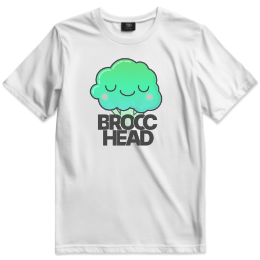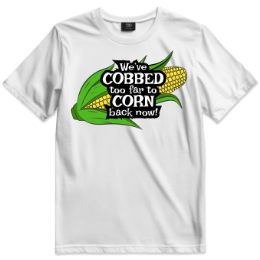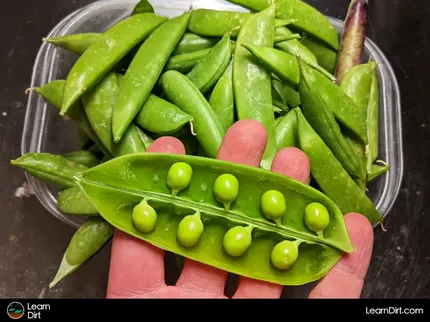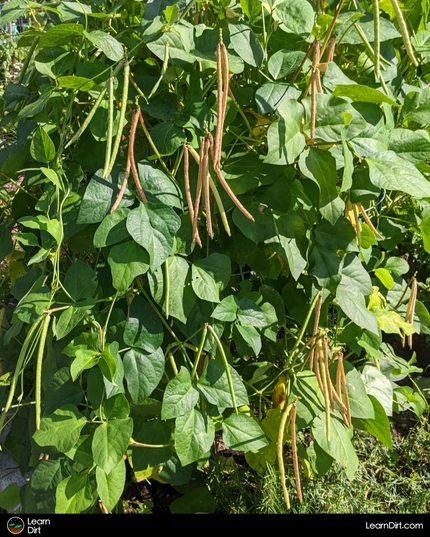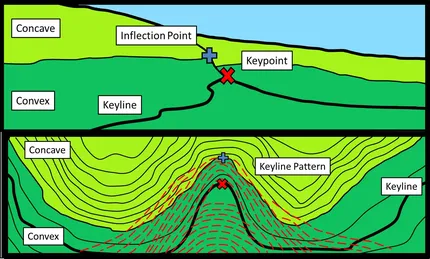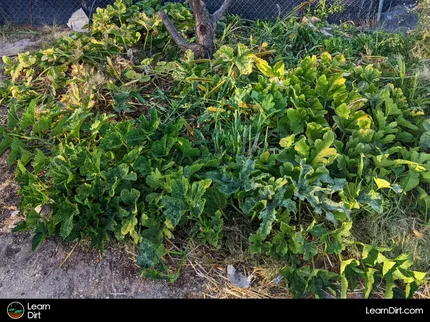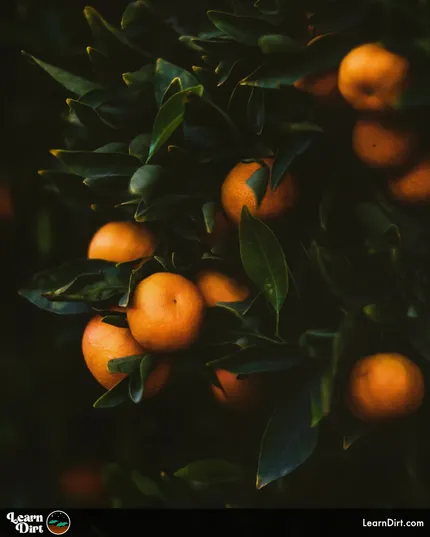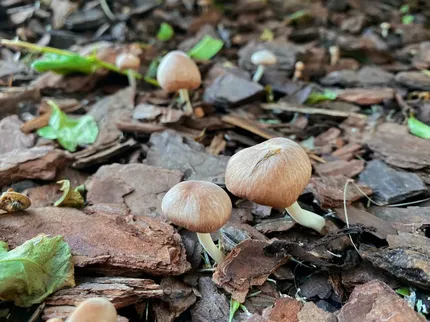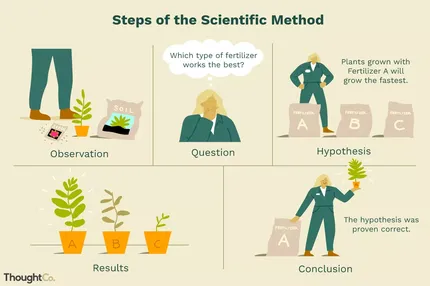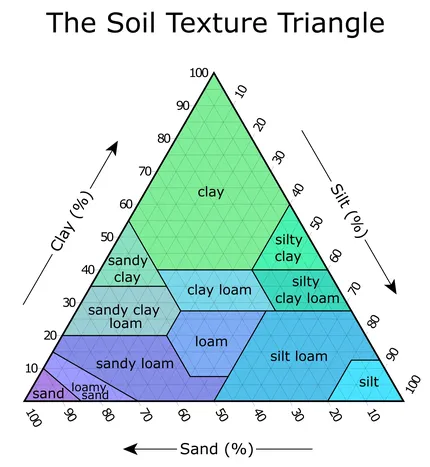Table of Contents
* Our articles never contain AI-generated slop *
Let's talk about nutrient cycling and we could look at your household as a system.
You might just be one person or maybe you have a family and inevitably you are going to purchase some nutrients in the form of food. So you go to the grocery store, you go to the farmer's market and you buy some produce.
Typically that produce cannot be used completely.
Disclaimer: This post may contain affiliate links. Refer to the privacy policy for more information.
You buy some coffee, you brew some coffee, now you've got coffee grounds left.
You buy some tea, you brew some tea, now you've got tea leaves left. You might even have tea bags left as well.
You buy some bananas, now you've got banana peels left.
Maybe you buy some carrots with the tops and sometimes you put those tops in some soup or something, maybe because they will not quickly, you don't have anything at the time that you are going to use those carrot tops for. So they are excess nutrients.
Maybe you buy some cabbage and the outer leaves are a little bit messed up. So you are going to peel off some of those outer leaves and discard those so you've got some excess nutrients.
You buy some onions, you are going to have the ends of the onions and the onion skins. Now I always use my onions for bone broth or for stock. Same with carrot ends and if you peel your carrots, carrot peels, carrot shavings, celery tops, celery stumps, etc. Some of that can be used immediately and go into the stock or the bone broth, right? Or you can store those in your freezer like I do until you've got enough and then you can whip up a batch. Every so often you can whip up some broth or some stock.
Join The Grower's Community
Whether you cultivate vegetables, house plants, succulents,
mushrooms, flowers, cannabis, or more...
you're welcome here 🌱
Check It Out!
Inevitably, though, you end up with a lot of excess that can't be utilized from the produce that you purchase. There are always bits that are hard to use, always things that are discarded.
So what does the the typical person do? Well most people throw that stuff in the trash and they send it away. So that is valuable nutrients. There are minerals, there are trace elements in there, there is all kind of carbon and nitrogen. And some great trace elements in there. And what do you do? You send it away. You throw it in the trash. You pay a garbage collection fee. Right? You're paying the town to come and collect your trash.
Now maybe that trash collection fee is included in your rent or your HOA fees or something, but somewhere you're paying the town to come to your house and take nutrients which you bought with your hard earned money, valuable nutrients, take that from you. You're paying them to take that away from you instead of utilizing it yourself. It's the same with leaf collection. You know this ridiculous phenomenon that happens in temperate regions during autumn where the deciduous trees drop their leaves. And all the valuable nutrients in those leaves which are meant to break down and go back into the soil, those are meant as a nutrient store that's to be used for soil building to break down and go back in and to be re-accessed by the trees through the soil eventually years in the future. What do people do? They pay the town to come and take all those nutrients that your trees worked extremely hard to extract from the soil, all the high quality nutrients from the soil. And then you send it away, you pay someone to come and take valuable nutrients from you and send it away. Right, and where does all this go? I mean, typically the town comes, they haul all your nutrients across town to the dump. And then what? Well, the dump is not growing trees, they're not growing food with it. That site is going to be toxic for a thousand years. It's a problem and they arrive at some problem that they have to somehow make disappear. And you have to pay them to do that, right? In my town, landscapers have to pay the dump to take their tree trimmings, all their shrubs and clippings and trimmings and leaves. They have to go wait in line and they have to pay the dump to accept those valuable nutrients from them. And now instead of the dump utilizing those valuable nutrients, it's just like I said a problem that they have to somehow make disappear. And really, that dump is going to be a problem for your town for a thousand years into the future, a toxic waste site. Those nutrients will be locked up inaccessible. Often those pits are aligned to prevent leaching of all the toxic sludge that people dump in there. So those nutrients are literally just locked up where nature can't even access them. You can't even use them, nothing grows at the dump. Nothing will grow at the dump for generations to come. Those nutrients are locked away. Unusable. It's the same if you grow your own food. If you grow your own food, you'll end up with even more unusable bits you'll end up with, you know, I mean, broccoli stems. And you'll end up with some diseased plant leaves or some pest-ridden plant leaves that are too beaten up to be edible. And you'll end up with, you know, inedible leaves and stalks and stems from, say, pepper plants, right? Like things that you can't eat. And so you're going to end up with even more nutrients that you can't consume directly if you grow your own food. And so what are you going to do? Are you going to send that away to the dump too? Are you going to pay money for garbage collection fees so that the town can come and take away your nutrients that you worked hard to bring in as an input to your system? You went and you bought those plants. You bought those seeds. You bought soil. You bought compost. You bought food from the grocery store from the farmer's market. You hauled it home. You went and spent time and money to haul all that stuff home, those nutrients. And then what you're going to pay the town to just take that away from you. And not only are you paying them to take away something valuable from you, but also now, you know, oil has to be drilled. And from the earth extracted, shipped across the country, sometimes further, to finally make its way to power that garbage truck that the town is driving, right? Diesel fuel has to be extracted to power that garbage truck. Now that garbage truck is burning fossil fuels. And the exhaust from the diesel fumes is polluting the air in your city. That carbon that was extracted from the earth and is now being exhausted into the atmosphere, which is affecting the global climate. Increasing the temperature of the planet, melting the ice caps, etc. You know how climate change works. Well, at a very tangible level, if you are paying the town money to come drive their big garbage truck to your house every week, multiple times a week, to pick up your leaves and pick up all the food scraps that you throw in the trash, you are paying money. Paying money to pollute the environment, to send away your valuable nutrients, which you could be cycling in your own nutrient system instead of sending it away. The more nutrients that you can hang on to, the less nutrients you have to bring in from outside sources. So the more you compost your leaves, your food scraps, your coffee grounds, your banana peels, etc. And create valuable compost and then grow your own plants, your own food from that valuable compost. Now, the less money you have to spend going out to the farmers market, going out to the grocery store, bringing external nutrients into your house, going out and buying compost from the nursery or the big box store, going out and buying soil amendments, going out and buying fertilizers for your trees, for your grass, for your yard, for your garden, hauling food across town every week from the grocery store, and then sending the majority of that nutrient away. You know, paying the town to take your food scraps away, paying a sewer bill to flush nutrients down the toilet. But one more that people often overlook is hair. You know, you eat food, you pay money to buy food, you eat the food, your body converts some of that food into hair, you use that hair for a while, but then eventually it gets too long, and you have to cut it. And all that hair contains minerals, nutrients, keratin, lanolin, all sorts of good things that you know, you can't consume directly, but decomposers can consume it. You can compost your hair if you cut your hair yourself instead of going to a barber, you can compost your hair, you can break that down, turn that into high quality soil, which your plants can consume, and then you can grow plants from that soil, which you can consume. So if you can close these loops, if you can stymie this flow of nutrients, this outflow of nutrients from your system, if you can reduce the amount of nutrients you're sending away from the system, you can reduce the number of inputs into the system, which translates directly into cost savings, but also a reduction in environmental pollution, right? Instead of having to go drive across town and buy more produce that was shipped 1500 miles to the grocery store, and then paying a truck to come and drive some of those nutrients away again, across town to the dump. Instead of doing that, you can just keep as much of the nutrients as you possibly can on your land, on your property, in your household, in your compost, in your garden. You can cycle the nutrients, feed it to decomposers, break that down into soil, feed it to plants, grow plants from it, and then feed that back to yourself and your family and your animals, right? So the more you can close this loop, the less nutrients you have to bring in from the outside, the less you pollute the planet, the more carbon you can sequester, but also the less money you have to spend, bringing outside nutrients in, right? If you can compost, much of the nutrients that you would have otherwise sent away, and then you can grow that into food, this reduces your grocery bill. If your grocery bill is reduced, food is typically people's second largest expense behind housing, or for some people with a high transportation bill, food is their third largest expense behind housing and transportation. But I think for most people, food is their second largest expense typically, and so if you can grow your own food, if you can produce your own compost, if you can sequester nutrients, on your property, if you can cycle nutrients instead of sending it away, and turn it into compost, and turn that into food, and feed your family with it. Not only do you get the highest quality produce, not only do you get a level of nutrient density that's unparalleled by anything money could buy, not only do you get the highest quality compost, that's better than anything you could buy, but you can also reduce the amount of money that you need to earn, the amount of money that you need to spend, the amount of taxes that you then have to pay, theoretically, you could cut down if you work 40 hours a week, you could cut down to 30 hours a week, spend the extra 10 composting and growing your own food, now you're feeding your family higher quality food, you're earning less money, you're paying less taxes, that might even drop you down to a lower tax bracket, which means even more tax savings, and now instead of doing one boring monotonous thing for 40 hours a week, now you only do that for 30 hours a week, you spend the extra 10 out playing in your garden, and what I've found is that growing your own food is not just a fun, silly little hobby, it's actually one of the most rewarding things you can do, because it's so fundamental to life, right? To grow food, and to produce your own food is one of the most basic fundamental cornerstones of human life, which most humans have done for 99% of human history most humans have partaken in either agriculture or for a humping, trapping, raising of livestock, etc, like living closer to the land, producing their own food, or else hunting and foraging for their food, but there's something deeply satisfying about this, it creates an incredibly satisfying life, when you can find a way to see your own food, and spend a good chunk of your time growing your own food, and it means you need less money to live, it might mean that you can reduce your hours at work, now, of course, if you reduce your hours at work, there might be consequences, right? Unfortunately, at least in the US, healthcare is often tied to your job, which is absurd and ridiculous, but that's the way that it is, and so if you want to break free from your job in any regard, if you want to cut down to less than 40 hours a week, you might lose healthcare, you might lose 401k matches, right? There might be consequences, certainly I'm aware that there might be consequences, and you'll have to weigh that decision carefully, if that's something you want to pursue, but I'm just saying, theoretically, you know, you could dial back the hours that you're spending making money, and increase the hours that you're making producing food, because so much of your money goes to food anyway, and the quality of it freaking socks. If you buy it at grocery stores, the quality is a business, right? I mean, the food that's available to you at grocery stores in the US is absolute trash garbage, it shouldn't even be fed to raccoons, let alone people. You know, and so if you wanted to eat higher quality food, and you wanted to live a more rewarding life, and spend some of your time doing something that gives you life and gives you energy, you could consider cutting back on the hours you spend toiling away in the capitalism to make made up fake paper money, and increase the hours you spend out in your garden, growing actual real tangible high quality produce that can feed you and your family, and reducing the outflows of nutrients from your home system, by increasing the nutrient cycling, saving everything you possibly can, your coffee grounds, your tea leaves, your banana peels, your onion skins, right? You can even save your hair, you could save your fingernails, if you want all that is nutrients that you've paid for in some way to bring into your home system, and all that nutrients can be reused and cycled through again and again and again, if you know how to compost, if you understand that alchemy, which turns nutrients into black gold, if you understand how to feed the composers, then the byproduct of that can feed plants, and then the byproduct of that can feed you and your family. So anything that you can do to reduce the outflows of nutrients and to reuse nutrients, again and again and again, cycle nutrients through your system, anything that you can do there ultimately will save you money and help you grow higher quality food with greater nutrient density, increase your nutrition, maybe allow you to work less hours. Maybe allow you to live with a little bit less reliance, slightly reduced reliance on money, maybe pay a few left taxes, right? Me as one person, for example, I can produce about a hundred pounds of the highest quality compost imaginable in a year. I can produce enough compost to grow, probably a thousand pounds of plants, a hundred pounds of compost could easily grow a thousand pounds of plants because plants are mostly water, which comes from the sky, and additionally plants are... comprised of carbon after the water, carbon is their second largest constituent, and that also comes from the sky. The carbon is extracted from the air by the plants, and then if you grow nitrogen fixing plants, then those plants team up with nitrogen fixing bacteria in the rhizosqueer, which colonize their roots, and then the nitrogen fixing bacteria can pull nitrogen from the atmosphere as well. So when you grow plants, 90 plus percent of what those plants are comprised of comes from the sky or the air, and less than... less than 10 percent of those plants are minerals and trace elements, which are the nutrients that we're talking about cycling here. So if you could produce a hundred pounds of high quality compost in a year, which I can easily do as one person, then you could likely grow a thousand pounds of food from that to feed yourself. You know, just by stymying the outflow of nutrients, I've cut my garbage volume by about one third of what it used to be. By shredding my cardboard and composting my cardboard, as well as my food scraps, and composting my hair when I cut my hair, my coffee grounds, my tea leaves, banana peels, all of this stems and stalks, unusable leaves, etc. All of this has reduced my trash outflow easily by 60, 70, maybe even 75 percent. And now the nutrients that I mostly sent away paid money to send away polluted the atmosphere to pay a big diesel truck to come and haul away from me. Now, I hang on to those nutrients. I cycle those nutrients, I compost those nutrients. They stay with me. And the amount of high quality soil that I can produce, it just grows every year the volume of soil, which I have produced. You know, over time, more and more nutrients are sequestered in my system. And cycled through again and again and again, you know, some of those minerals, some of those trace elements, could be cycled through thousands of times, where the average person buys them, uses them once and immediately sends them. And so this system's thinking, looking at your household as a nutrient system and seeing where the inputs are and where the outputs are and reducing those outputs, preventing the outflow of as much quality nutrient as you possibly can from your system, means that you can continue to cycle those nutrients and feed yourself, and your family, the highest quality, most nutrient dense food imaginable with fewer and fewer inputs and less money spent each year. On inputs, if you can save seed, check out our article on seed saving. If you can save seed, then you can reduce the money you spend on bringing in seeds from outside sources each year. You can reduce the nutrients you're bringing in from outside sources each year. You can reduce the food you're bringing in from outside sources each year. And the self-sufficiency just builds and builds and builds and your self-reliance increases and your reliance on the system and on money and on capitalism and on oil and on pollution. And on global supply chains and on corrupt corporations, all of that decreases over time. And you become more and more self-reliance. The nutrients on your land increases the carbon that you're sequestering increases the health of not just you and your family, but also your local ecosystem improves and improves and improves. Your garden, your land can begin to flourish and thrive. The more nutrients you can sequester and cycle, the more biodiversity you can cultivate, the more habitat you can provide for native species, the more balanced and symbiotic, the ecology on your land. The more you can start to heal yourself, your family, your ecosystem at a grassroots level. And if people do this at greater and greater levels, if more people engage in this process, you can inspire them. You can educate them, you can help teach them how to do this, you can show people how to reduce their nutrient outflows, how to cycle nutrients, how to heal themselves, how to heal their land, and the grassroots movement can grow from the bottom up. And ultimately, we can heal the planet and return to a healthier, more holistic, more symbiotic way of living harmoniously with nature instead of fighting so much against our home planet Earth.
That's all for now, thanks for reading!
If you have any questions, comments, or would like to connect with fellow gardeners, head on over to the forum and post there.
![Black Dirt Live Again [Blue]](/media/product_images/black-dirt-live-again-[blue]_shirt_260x260.png)

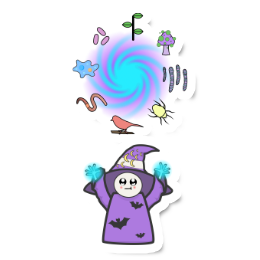
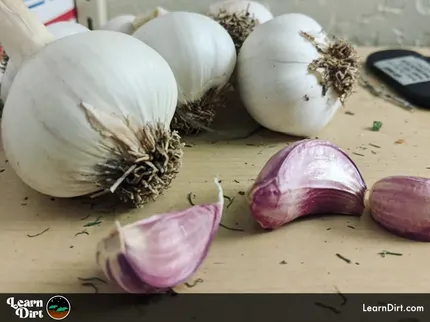
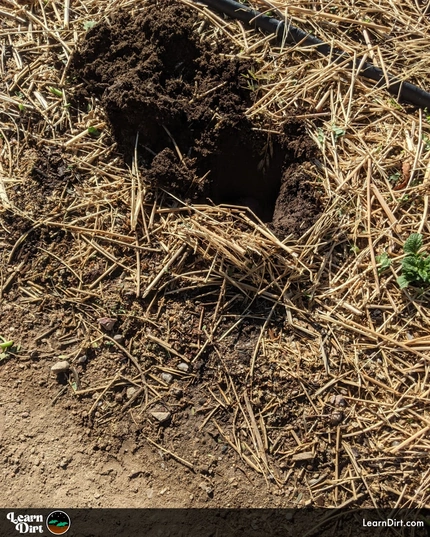
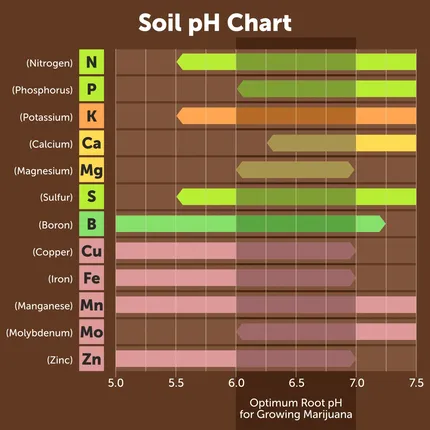
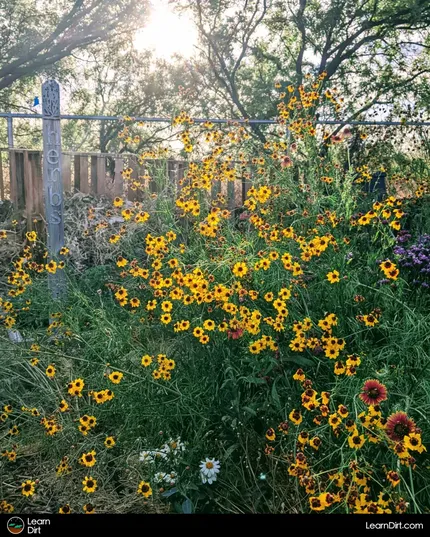
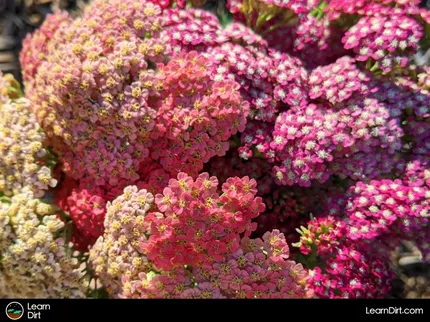
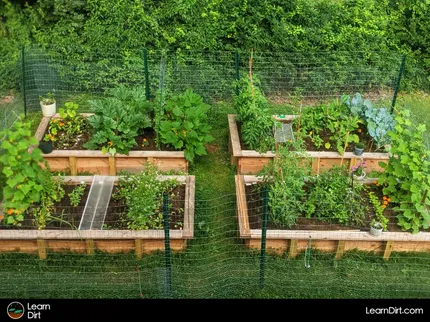
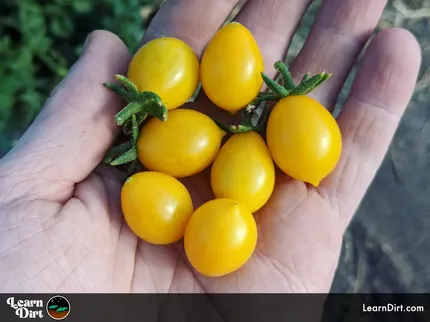
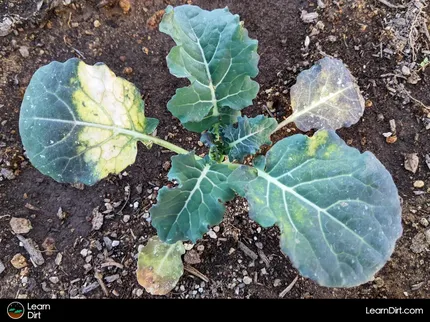
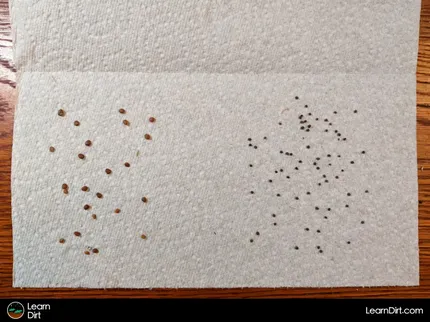
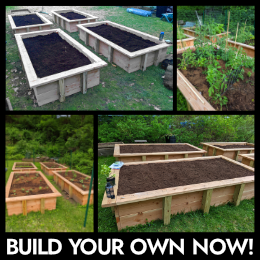
![Black Dirt Live Again [Purple] Sticker](/media/product_images/black-dirt-live-again-[purple]_sticker_260x260.png)
